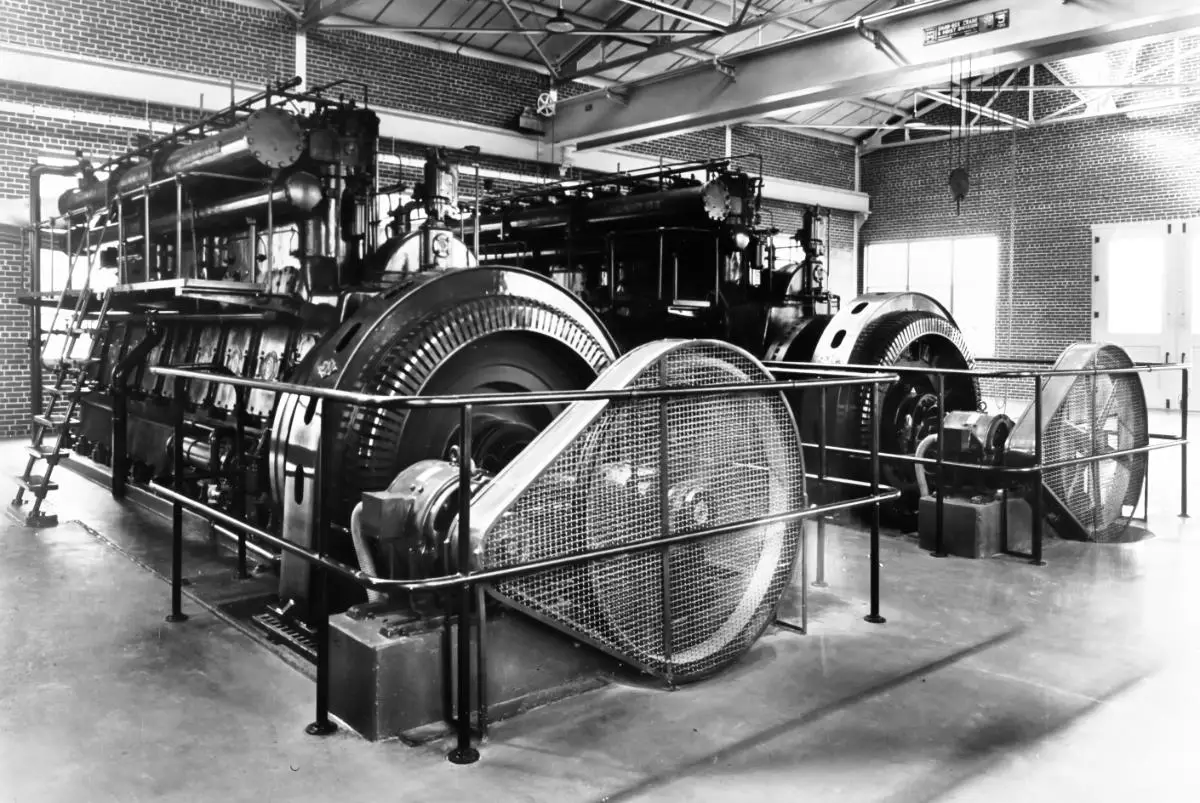History of the Diesel Engine
Learn all about the history of the diesel engine, how diesel engines work, and the impact of the diesel engine on the world.

While not as popular as gasoline engines, diesel engines are still commonly used in a lot of vehicles today. In particular, you'll often find diesel engines used in applications where having a lot of torque is what matters the most. That's why you'll usually see diesel engines in things like semi trucks, freight trains, and large ships, since they often have to haul around a lot of weight.
Today, we'll be talking all about the history of the diesel engine. We'll be going over its origins, how it works, and why it made the impact on the world that it did.
How Does a Diesel Engine Work?
A diesel engine is a type of internal combustion engine and thus works almost identically to a gasoline engine. The only real difference between a diesel and a gas engine is how the air/fuel mixture is ignited inside the combustion chamber.
In a diesel engine, air and fuel enter the combustion chamber during the piston's intake stroke. Then, the piston moves up in the cylinder, compressing the air/fuel mixture greatly. This causes pressure and heat to build up inside the combustion chamber until the heat ignites the air/fuel mixture.
The main difference between gas and diesel engines is that diesel engines ignite their fuel entirely through the heat generated by compression. Gas engines also compress their air/fuel mixture, but they use a spark plug to actually ignite it; the compression is just there to make sure the air/fuel mixture burns evenly.
Because of the way they work, diesel engines have a few advantages over gas engines. For one, diesel engines are a lot more fuel-efficient; because diesel engines have much higher compression ratios than gas engines, this means that the air/fuel mixture in a diesel engine gets burned more evenly.
Diesel engines also tend to produce a lot more torque than gas engines, as we've mentioned. In an engine, the terms "bore" and "stroke" refer to the width and depth of each cylinder, respectively. Diesel engines usually have a low bore/stroke ratio, meaning the depth of the cylinder is greater than its width.
Because diesel engines work by compression ignition, the piston needs to have a long stroke to generate enough compression in the combustion chamber. Torque is a measure of force times distance, so by having a longer stroke, the engine naturally produces more torque.
History of the Diesel Engine
The diesel engine is about as old as the internal combustion engine itself, with the first diesel engine being made in 1893. The diesel engine got its namesake from its inventor, Rudolf Diesel, a German inventor and engineer.
Originally, diesel engines were intended to be a replacement for stationary steam engines, which were primarily designed for things like powering factories and mills. Compared to steam engines, diesel engines were a lot more efficient, and thanks to their high torque output they were very much suited for their intended purpose.
Because they were originally intended to power factories and the like, these first diesel engines were massive in size, and far too big to be used in anything other than a building or a large boat. The first diesel engine didn't appear in any wheeled vehicle until 1908; the vehicle that used this engine was a utility truck.
The first powered vehicle of any kind to use a diesel engine was actually a sailing ship. There's some debate over which ship it actually was, but it was either the Russian-built Vandal or the French-built Petit-Pierre. In any case, both of these ships were launched in 1903, so it doesn't really matter which one was first.
Diesel engines didn't get small enough to fit inside passenger cars until the 1930s, however. The first commercially-available car to use a diesel engine was the Mercedes-Benz 260 D in 1936. The first-ever car to use a diesel engine, the Citroën Rosalie, was actually made a few years earlier in 1933, but the diesel Rosalie was just a one-off car used for testing.
However, the story of the diesel engine's inventor is arguably a lot more interesting than the story of the engine itself, particularly the details surrounding his death. In 1913, Diesel boarded the steamship SS Dresden in Belgium to travel to London, where he was supposed to meet with a diesel engine manufacturing company.
On the first night after the ship left port, Diesel went to bed at around 10 p.m., with a request to be woken up at 6:15 a.m. However, when the crew went to wake him up the next day, he was nowhere to be found. His bed had not been slept in, although he had left some of his personal effects nearby.
Ten days afterwards, a Dutch ship came across the body of an unidentified man floating in the water. Due to poor weather, the crew was unable to retrieve the body, but they were able to recover several personal items in the man's clothes. Shortly thereafter, Diesel's son Eugen identified the items as belonging to his father.
There has never been a clear explanation behind Diesel's death. Some believe he was murdered, while others believe he committed suicide. There are very few facts to confirm either of these theories, and the case remains unsolved as of this day.
What's the Appeal of Diesel Engines?
Considering that gasoline is the dominant type of fuel these days, you could be forgiven for thinking that the invention of diesel didn't really do all that much for the automotive industry. However, you'd be sorely mistaken.
One of the main benefits of diesel fuel is that it's a lot more stable than gasoline, and doesn't combust quite as easily. This made it particularly appealing for military applications. Diesel is also cheaper to refine than gasoline, which is also a pretty big plus.
While diesel doesn't burn as cleanly as gas, it's also a lot more fuel-efficient. Because diesel engines lack components like spark plugs and associated electronics, they're also simpler to run and easier to maintain than gas engines a lot of the time.
However, diesel's popularity took a pretty big hit a few years ago thanks to the Volkswagen emissions scandal. If you're not familiar, this scandal (also known as Dieselgate) came to be when the EPA discovered that Volkswagen had been using software during emissions testing to trick the testing equipment into thinking that emissions were much lower than they actually were.
As a result, people have become a lot warier of diesel, and diesel cars aren't as common on today's roads as they once were. Despite this, the advantages diesel offers mean we'll probably still see it being used for as long as internal combustion engines are around.

